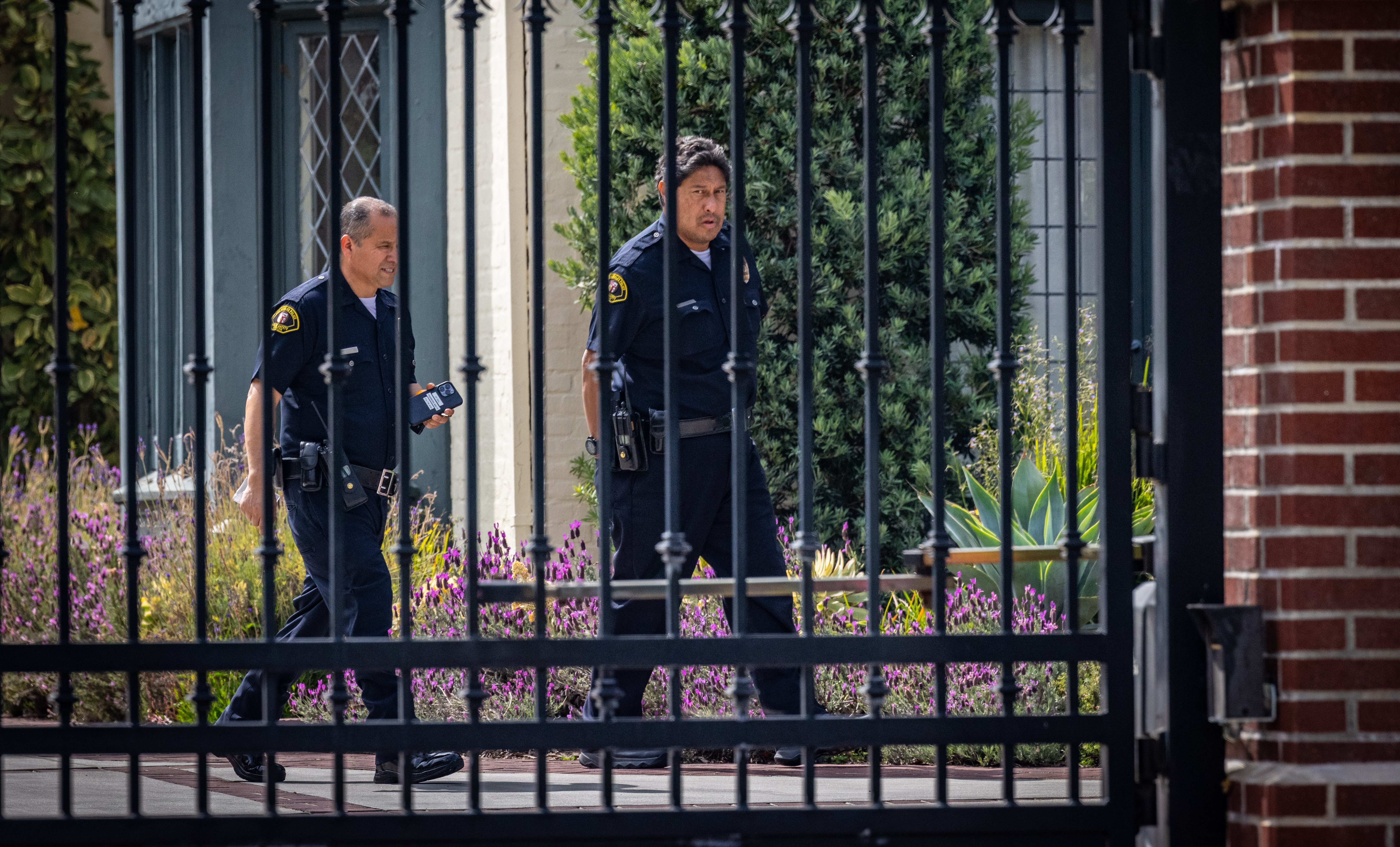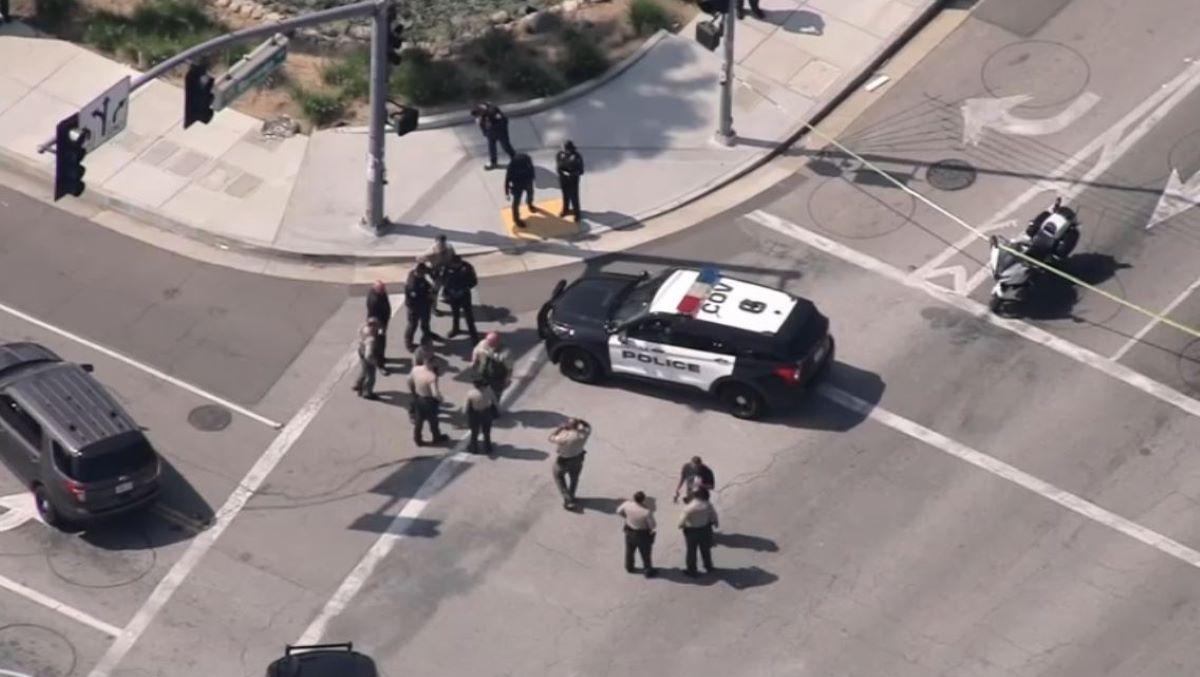It was December 2010 and Blair Holliday was on top of the world. The Oaks Christian wide receiver scored the game-winning 2-point conversion to lift his team over Westlake in the CIF Division Championship.
A year and a half later, he is just happy to be alive.
Following a successful senior season, Holliday chose to play football at Duke University. His freshman year was full of adjustments to the collegiate level, but the 6-foot-3 wideout blossomed during spring camp. Coaches noticed his development, his maturity, his intelligence. He was expected to start for the Blue Devils this fall.
But on the Fourth of July, Blair was away from his Sherman Oaks home with friends, teammates and their families on Lake Tillery in North Carolina. Holliday and teammate Jamison Crowder were enjoying the lake on personal watercraft, though heavy traffic created choppy waters, making it difficult for the inexperienced boater to navigate.
Blair stopped, Jamison didn’t.
Witnesses said they’ll never forget the terrible sight. Crowder’s watercraft crashed into his fellow receiver. The watercraft launched upward, using Holliday’s craft as a ramp. Blair ducked, but it was too late.
Holliday was struck in the head, the blow sending him jaw-first into the dashboard. He fell into the water unconscious.
Local
Get Los Angeles's latest local news on crime, entertainment, weather, schools, COVID, cost of living and more. Here's your go-to source for today's LA news.
Crowder was also thrown from his watercraft. When he emerged from under the water, he saw his friend and teammate face down and onlookers diving into the lake. One man tried to lift Holliday onto the damaged watercraft, but he couldn’t pull the 205-pound football player from the water.
Crowder reached his friend, pulled his limp body onto his watercraft and raced for help at the nearest dock. On an adjacent dock, 24-year-old nursing student Chelsea Gibbons dove into the water, knowing Holliday desperately needed help.
“My real ‘oh my gosh’ moment was when they were pulling him out of the lake and he was just hanging from his lifevest," she said. "You could tell there was no life in him. He was just flaccid, hanging there.”
While some called 911, Gibbons rushed to employ her nursing school training.
“I’m glad I was there because the people I was around kind of froze," she said. "My instinct just set in.”
Holliday struggled to maintain his breathing while blood ran from his mouth. His pulse was faint, his breathing was weak.
Then he stopped breathing.
“I gave him two rescue breaths, started chest compressions like I learned,” Gibbons said.
His breath, though shallow, came back and maintained until rescue personnel arrived.
Airlifted to UNC Trauma Center in Chapel Hill, Holliday was in a coma. Word had reached Holliday’s parents, Leslie and Rick Holliday, in California. His younger brother became sick to his stomach, and a similar feeling blitzed both parents en route to see their son.
“In my mind, I felt it was going to be bad,” Leslie Holliday said. “I had a prayer with God and said, ‘If you take him from me I’m not going to make it.'”
With coaches and friends surrounding him, Blair’s parents walked into their worst nightmare. Their son was connected to machines that helped him breathe and helped his heart beat. Most important of all, the machines monitored the pressure on his severely injured brain.
Holliday fought off pneumonia that set in six days later.
Leslie Holliday cried for her son, but refused to leave his side, transplanting her life to North Carolina without a second thought. Oddly, one of the rare moments when she left the hospital room brought a memory that she’ll never forget.
“It was the day that Blair’s Dad left. I took him to the airport, stopped for gas and my cousin called me,” Leslie Holliday recalled. “He said ‘I’m here talking to your son.’ That’s when he gave Blair the phone. I said, ‘Hi Blair.’ He said, ‘Hi Mom.’ I was shocked.”
Leslie rushed back to the hospital, finally able to see her son’s eyes and hear his voice. He was transferred to the traumatic brain injury unit at Shepherd Center in Atlanta. Known for its success with brain and spinal cord patients, Holliday received intensely specialized care.
The progress was rapid, and he started relearning to talk and walk.
He doesn’t remember that day or the accident. But he knows things aren’t the same.
“It’s frustrating. Things that used to be easy for me now are hard,” said Holliday in his first interview since the accident. “But they’re only going to get easier for me the more I work on them.”
Short-term memory is problematic. He’s still working on expressing himself, suffering from dysphasia as a result of the accident. He knows what he wants to say but the words don’t always come out the way he pictures them in his mind. Speech therapy is improving his self-expression.
Holliday was reunited with Gibbons, the nursing student credited with saving his life.
“Nice to meet you,” she said when they met.
Blair’s football coach, Duke’s David Cutcliffe, also visited his receiver.
“It’s really been a miracle,” the coach told Holliday as he chatted with him outside his hospital room.
Cutcliffe presented Holliday with his game jersey, a bright white No. 8 shining against the Blue Devil blue. Holliday’s smile nearly lit up the room.
But sadness enveloped him when his coach informed him he’d be taking a medical redshirt, unable to play in 2012.
“I found out that I was being medically redshirted this year and that upsets me because I can’t play,” said Holliday, with no trouble expressing his disappointment. “If my brain wouldn’t get hurt I’d play right now.”
The prospects of playing competitive football again are bleak. His athletic future will likely never reach its past. But it’s a big reason he’s still alive.
Dr. Andrew Dennison, a rehabilitation physician on Shepherd Center’s traumatic injury unit, credits Holliday’s physique as an important factor in his recovery.
“His body is better able to deal with the trauma," Dennison said. "I think his pre-existing work ethic comes through for him to be able to push through with the therapies.”
And so Blair pushes his body.
“I’m not angry,” said Blair. “I’m thankful that it happened to me to show me what life is like, that life is precious and you can lose it at any point and time.”
Against all expectations, the 19-year-old was released from Shepherd Center on Sept. 1, transferred to the hospital’s outpatient facility.
“I think Blair’s prognosis is good,” said Dr. Dennison. “He’s going to continue to do better and better.”
"Better" means walking around miniature obstacle courses filled with cones and rubber balls, going outside, living with his Mom, eating at restaurants and feeling the love showered on him by friends and family.
Love exemplified by people like his roommate David Helton, who designed t-shirts that he sells at Duke to raise money for his friend. He feels the support rendered by Pray for 8, a twitter-based campaign paying homage to his jersey number.
He also feels, and hears, the words of those around him. Those who continue to say the same thing over and over again.
“It’s a miracle. I can’t begin to express how happy I am,” exclaimed his mother.
“You’re sitting there watching miracles occur in front of your eyes,” said Coach Cutcliffe.
He’s heard the word thrown around his hospital room many times, and he’s working hard to continue making miracles happen.
“I’m doing better. I’m going to get better. I’m planning on getting better,” he said.
To learn more about Blair and the PrayFor8 campaign, visit blairholliday.org.



